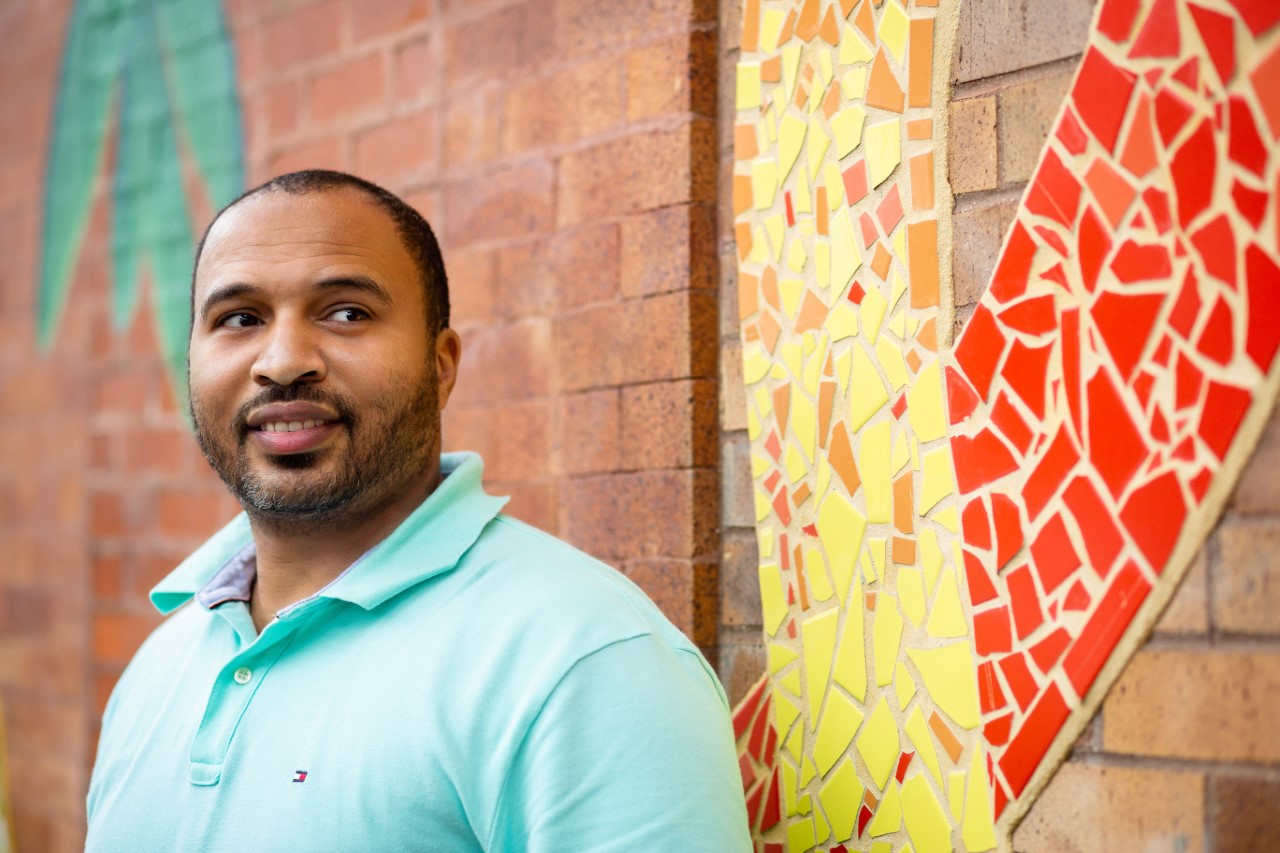
February 4, 2022
“We Stayed Open.” Project Vida utilizes GTZ-IL’s Community Grant to support Black Gay, Bisexual men in the face of a pandemic
Content warning for topics involving sexual violence and drug abuse.
20 years ago, if you saw Jerome Montgomery, then an electrical engineer and software developer and were told he would become the Executive Director of an organization that fought to support Latino and Black gay, bisexual, and same gender loving men in Chicago, you might have thought that was impossible. However, connecting with his community was nothing new to Montgomery, as he adored participating in theatre and school activities outside of work.
“Even though I didn’t realize it, [community engagement] has always been a part of what I’ve done and who I am,” Jerome remembers.
When two of his friends joined the board of Project Vida, they let him know they needed a member who had history in both IT and community engagement. Montgomery was a natural fit. During this time, he recalled that Project Vida, much like many small community organizations, experienced its share of trials and tribulations with getting its work off the ground. As this continued to happen, the board decided to take over operations within the organization. Jerome Montgomery was then provided with the opportunity to step down as a board member, become the interim Executive Director, and get his hands dirty in the day-to-day ongoings involved with the clients he cared so much about.
Founded in 1992, Project Vida is a non-profit organization on the southwest side of Chicago and the Little Village community. Project Vida was formed in response to the HIV and AIDS epidemic and to address the disproportionate impact it had among Latino/a/e/x and African Americans.
On June 17, 2021, Getting To Zero Illinois (GTZ-IL), a statewide plan to end the HIV epidemic by 2030, awarded 14 organizations a total of $350,000 in total funding for their first annual Community Grant Program. AIDS Foundation Chicago (AFC) raised funds from 90 private donors, continuing a long legacy of grantmaking.
Now, thanks to the $30,000 GTZ-IL grant, Project Vida can elevate their project development towards uplifting the community of Black gay, bisexual and same gender loving men. GTZ-IL is a statewide plan to end the HIV epidemic by 2030. With this new community grant money, Project Vida developed two main goals:
- Increase outreach, awareness, engagement, education, and support for Black gay, bisexual and same gender loving men living with HIV and those who use or are at the risk of using methamphetamines.
- Develop an anonymous text & call hotline that provides resources and support to Black gay, bisexual and same gender loving men and their networks.
The anonymous hotline will be backed by LinkUp Chicago (LUC), whose mission is to “support, inspire, and uplift Black gay and bisexual men through spirituality-based programming and connection to intentionally safe spiritual and social services.” Members of LUC consist of case managers, outreach specialists, prevention coordinators, Ballroom community members, as well as those from kink and fetish groups. When doing this work, Project Vida and LUC understand that supporting those taking on such a role requires a significant amount of not only vulnerability, but empathy of individual experiences.
Over the past two years, Project Vida recognized how many support systems were stripped from its community members due to COVID, and that isolation left individuals in increasingly vulnerable positions. By prioritizing these new projects, Vida can provide safe spaces, care, and prevention tools to anyone who needed it.
“There had been such a rise in individuals using drugs, especially among Black gay, bisexual and same gender loving men with crystal meth being the substance of choice,” Montgomery said. “When backed by all the barriers like substance use or concerns, stability and housing, lack of employment, severe mental health conditions, food instability, as well as a higher percentage of individuals being victims of sexual assault and trauma, we initially believed that what was coming through our doors was anecdotal. I guess the uniqueness of the severity of these particular clients was that they were back-to-back-to-back.”
At the height of the pandemic, Project Vida was one of the few organizations that remained open to provide face-to-face services to its clients to talk about cultural competency, and stigma surrounding substance use and HIV. In most cases, Black gay, bisexual and same gender loving men use crystal meth to numb pain and to keep themselves awake. By staying alert, individuals don’t have to stress about their unstable housing or need to use public transportation. Some are also involved in “survival sex,” or sex work, and meth would suppress their hunger, keeping them lean and attractive to their clients. Regardless of their reason to use, Project Vida fights to improve all clients’ physical, mental, and spiritual health, and GTZ-IL’s funding aided in this significantly.
Project Vida’s long-term goals for the organization after this grant-period are increased engagement of those who are at risk or actively using methamphetamines. This drug influences the risk of individuals contracting HIV, but also adherence to medications like Pre-exposure prophylaxis (PrEP) and Post-exposure prophylaxis (PEP). Project Vida also wants to create recovery spaces for clients, and increased support around housing and spiritual wellness in order to decrease the spread of HIV and use of methamphetamines in Chicago.
To learn more about their upcoming projects, visit Project Vida’s website.
To learn more about GTZ’s first-ever Community Grantee program, click here.
In preparation for Illinois HIV Advocacy Day, we want to highlight the stories of more organizations like Project Vida that are ending the HIV epidemic in Illinois. To get more involved in the fight to get to zero, sign up for AFC’s Mobile Action Network for the tools to get engaged and speak out to your legislators! Visit our Resources page to read the 2022 Legislative Priorities.
